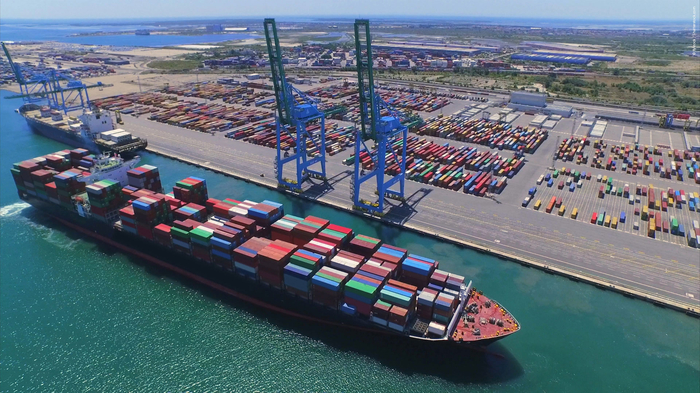From February 2025, a comprehensive restructuring of the international ocean freight alliances will come into force. New timetables, revised routes and capacity shifts will have a lasting impact on the market. How can companies best adapt their logistics processes to remain efficient and competitive? Our ocean freight expert Yannick Böttcher has four tips for you.
Monitor Shipping Company Schedules
The planned changes might have a significant impact on existing transport solutions. Close coordination with your logistics partners is crucial to ensure that you are informed about new developments at an early stage. “Here, it is necessary to look at the respective demands of a company's own supply chain on an individual basis,” explains Yannick Böttcher.
Our tip: Hold regular consultations with your logistics service provider and check the schedule information together. Major changes are planned by shipping companies, especially on routes between Asia and Europe and between Asia and the US.
Use Route Diversity in Ocean Freight
With the change of schedule, some alliances have switched to a new system with central ports of call (hubs). This so-called “hub & spoke system” distributes goods from the hubs to shorter routes and smaller vessels. “We are closely monitoring this development. For ocean freight customers, this greater route diversity can be an opportunity,” explains Böttcher.
Our tip: Take a look at these new options on the trade routes together with your logistics service provider and use the route diversity to your advantage.
Book Freight Capacity Timely
Freight capacities are limited, especially at the beginning of the new schedule. This is because the alliances have reserved a lot of cargo space to meet the new schedule. “It's a bit of a paradox: more vessels were put into service in 2024, but the capacity available to the market is currently stagnating,” reports Yannick Böttcher.
Our tip: Plan ahead and secure the best conditions. Use digital booking platforms to reserve available capacities early and compare them transparently.
Shorter Transit Times Optimize Your Logistics
The new timetables could improve your logistics strategies. “Big changes often also offer the opportunity for further improvement,” says Böttcher optimistically. “The key is to identify and leverage the potential for these improvements.” Shorter transit times and more cost-efficient routes can be one way to further optimize your transport routes.
Our tip: work with logistics experts to analyze the new networks and identify potential for reducing costs or increasing efficiency.
Ocean Freight 2025: What Will be Important?
International ocean freight continues to be influenced from many sides. The situation on the important Suez route will continue to be closely monitored. “As long as this important trade route is not fully usable, this will significantly influence the transit time planning of companies,” says Böttcher. Another issue could be the political disputes over tariffs. “Here, too, we are monitoring developments very closely and will inform our customers transparently and promptly,” says Böttcher.
Do you have questions about the timetable change or international ocean freight in general? Then don't hesitate to contact us! Our ocean freight experts are happy to help.
Contact us


